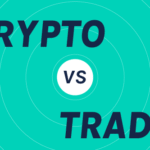Crypto Startup Funding: Top VC Deals and Emerging Trends

Introduction
In 2025, the landscape of crypto startup funding is showing signs of renewed optimism. After a period of cautious investment during the broader market correction, venture capital (VC) firms are once again making significant bets on blockchain technology—but with more strategic due diligence and a focus on utility-driven projects. From decentralized finance (DeFi) infrastructure to Web3 identity solutions and Layer 2 scalability, the current funding climate reflects a maturing industry that prioritizes long-term value over short-term hype.
Top VC Deals of 2025: Who’s Raising and Why?
Several crypto startups have made headlines in 2025 by securing substantial funding rounds. One of the largest has been a $150 million Series C raised by ZKX Labs, a company specializing in zero-knowledge proof-based privacy infrastructure for Ethereum. Another major deal involved Atlas Wallet, a Web3 super-app integrating payments, NFTs, and decentralized social media, which raised $80 million in a Series B led by a16z and Sequoia Crypto.
Meanwhile, NodeChain, a Layer 2 interoperability solution, secured $65 million in a funding round led by Polychain Capital. These deals highlight investor confidence in core blockchain infrastructure and user-centric platforms—signaling a shift from speculative tokens to foundational services.
Key Trends Shaping Crypto VC Investment in 2025
1. Infrastructure First: The Rise of Scalable, Secure Foundations
VCs are placing strong bets on infrastructure startups that promise scalability, security, and cross-chain compatibility. Layer 2 solutions, zero-knowledge rollups (zk-rollups), and decentralized storage platforms are attracting significant capital. Startups that provide the foundational tools for developers to build the next generation of dApps are seen as lower-risk, higher-reward plays.
2. AI and Blockchain Convergence
With AI becoming more integrated into blockchain products, VCs are actively exploring startups at the intersection of these two technologies. From AI-powered trading bots to machine-learning smart contract auditors, this convergence is spawning new investment categories. Projects that can apply AI to on-chain analytics, identity verification, and decentralized governance are particularly attractive.
3. Compliance and RegTech Startups Gain Momentum
As global regulatory scrutiny intensifies, crypto-focused RegTech startups are seeing increased interest from investors. These include companies building automated compliance tools, Know Your Customer (KYC) systems, and transaction monitoring services. VCs recognize that institutional adoption hinges on these regulatory rails being firmly in place.
4. Real-World Asset (RWA) Tokenization Platforms
Platforms that tokenize real-world assets—such as real estate, art, and commodities—have entered the funding spotlight. Startups enabling the fractional ownership of tangible assets via blockchain are considered key to bridging traditional finance (TradFi) with DeFi. Tokenization is viewed as a practical application with measurable real-world impact.
Geographic Shifts in Crypto VC Activity
While Silicon Valley remains a key hub for crypto innovation, there’s a growing shift toward emerging tech centers in the UAE, Singapore, Switzerland, and Hong Kong. These regions offer more favorable regulatory environments and government support for blockchain innovation. As a result, many startups are incorporating in these jurisdictions and attracting local VC firms that are bullish on digital assets.
The Role of Crypto-Focused VC Funds
Specialized VC firms like a16z Crypto, Paradigm, Pantera Capital, and Multicoin Capital continue to dominate early-stage investing. However, traditional firms such as Sequoia, Lightspeed, and Tiger Global are also participating more selectively in later-stage rounds. These investors are focusing on companies with proven product-market fit and clear paths to revenue.
Moreover, DAO-based venture funds are becoming more prominent, allowing community-driven investment decisions in early-stage crypto startups. These decentralized VCs democratize the investment process and are introducing new models for startup governance and engagement.
Challenges and Cautions in the 2025 Funding Climate
Despite the positive momentum, startups face higher scrutiny in 2025. VCs are demanding clearer business models, stronger security practices, and legal clarity before investing. Tokenomics alone are no longer sufficient to justify funding. Teams must demonstrate traction, user adoption, and compliance preparedness to secure capital.
Additionally, macroeconomic uncertainty and evolving regulatory standards remain risk factors, prompting investors to diversify portfolios and maintain capital reserves for follow-on rounds rather than overspending in seed stages.
Conclusion: A Strategic Evolution in Crypto Venture Capital
The crypto funding ecosystem in 2025 is smarter, more resilient, and strategically focused. Rather than speculative investments, today’s venture capital landscape favors real utility, regulatory readiness, and scalable innovation. For founders, this means adapting to higher expectations—but also enjoying deeper support from experienced VCs aiming to build the future of decentralized technologies. As capital flows return, the most promising startups are those that combine vision with execution in a fast-evolving space.









